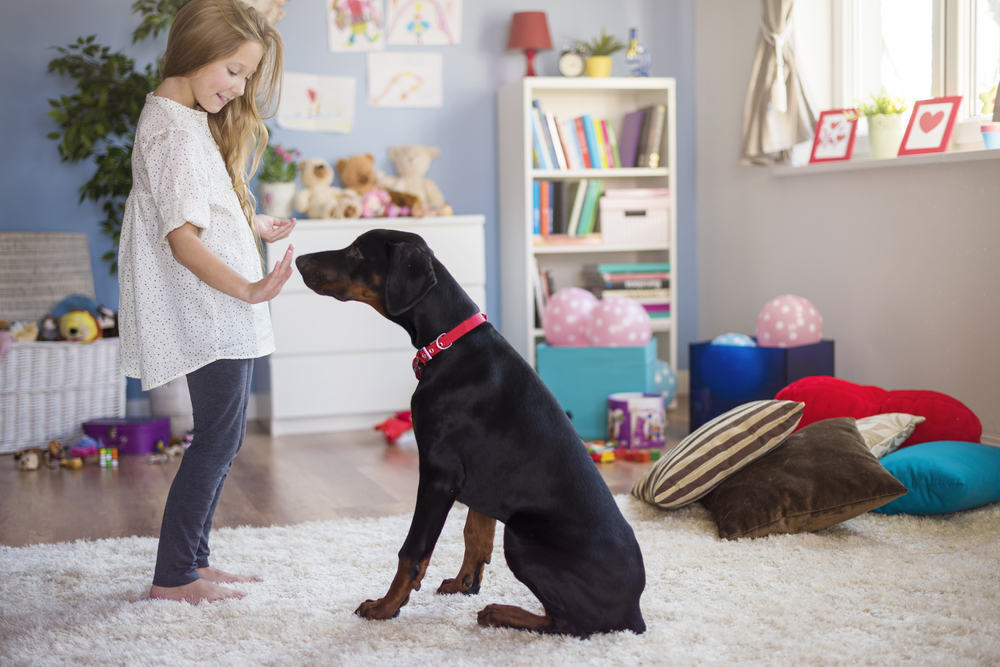
20 Jan New Pet in The Home – How to Encourage Responsibility Without Nagging
Are you and your family considering adopting a four-legged friend, or another lovable animal into your home? Are you hoping to take on this new endeavor with the help of your child? Many parents make the choice to expand their family by adopting a new pet. But the main question is, how does one take on the task of parenting without nagging? Fear not! This article will provide you with tips to help encourage responsibility without nagging your child.
Mental Health Benefits of Pets
We all know the joy furry friends can bring us. However, did you know that there is actual evidence that supports this wonderful feeling? Studies indicate that pets can decrease anxiety, stress, depression, and social isolation. Additionally, the routine that comes along with taking care of a pet can offer emotional support by providing a sense of security. In other words, having a routine and sense of responsibility for a pet can offer us a feeling of stability and overall well-being.
The Power of Responsibility without Nagging
Now let’s look at the pros of encouraging responsibility by adopting a pet. The benefits of taking on responsibility for kids can lead to an increase in self-esteem and empowerment. It also helps them to develop a sense of belonging by having a specific task in the family. For example, when children are given a role, whether it is to carry out a certain chore or responsibility, they take pride and ownership in the work that they do. We know that kids build self-efficacy when they are given chores. The NSFS blog has a good example of the benefits of kids doing chores. Responsibility without nagging is possible when encouragement is used. The keyword is encouragement. When we encourage kids to take on responsibility, it provides an opportunity for ownership that helps to empower kids and teaches them skills for developing independence.
Encouraging Responsibility Without Nagging
- Create a schedule of what taking care of your pet would look like. Involve your child! Encourage your son or daughter to think of what is involved in taking care of a pet. Discuss typical tasks such as feeding and walking. Go further and plan out when your pet may need to be washed, if applicable, or when their feeding/waste area needs to be cleaned. Collaborating with your child on identifying a schedule is important. This will encourage ownership in the responsibility that goes along with taking care of a pet. Above all, it will allow parenting without nagging to take place.
- Be sure that the expectations are clear and easily understood. Write out the specific tasks that go along with taking care of your pet. Be sure that your child understands what he or she is responsible for. For example, your dog needs to be walked. This does not mean that walking to the end of the driveway and back meets the expectations. You would then discuss with your child that your dog needs to be walked for at least 30 minutes per day. Make sure that your child is able to relay back to you what he or she is expected to do. You can also model expectations. Do a walkthrough of each expectation with your child so they have an idea of what is expected.
- Hold your child accountable. This means believing in your child and providing support. It does not mean making excuses if they forget or choose not to follow through on a specific task. Help them figure out what the barrier was to meeting the expectations. Work with them on figuring out a solution and what they could do differently next time. Responsibility without nagging is a possibility if you are showing your child that you believe that they are capable of taking on responsibilities. This is done through your words and the message you are conveying to your child about believing that they can handle the task of caring for a pet.
- Praise your child when they are doing a great job. It is okay to tell your child that they are doing a fantastic job. In fact, pointing out the positives and what your child is doing well helps boost their confidence and sense of mastery of taking care of the pet. This will continue to help your child stay on track and feel good about the work they are doing. Noticing the positives will also help when holding your child accountable. It will provide a sense of support. You will walk away feeling that you parenting without nagging.

Jeanine is a Licensed Professional Counselor who earned her Master’s Degree in Rehabilitation Counseling from Northeastern Illinois University. She also earned her Bachelor’s Degree in Applied Psychology from the University of Illinois at Chicago. Jeanine has been working with children, teens, young adults, adults, and their families in a variety of settings, such as private practice, therapeutic day schools, and residential settings since 2015.



Sorry, the comment form is closed at this time.